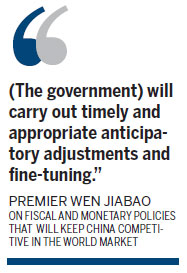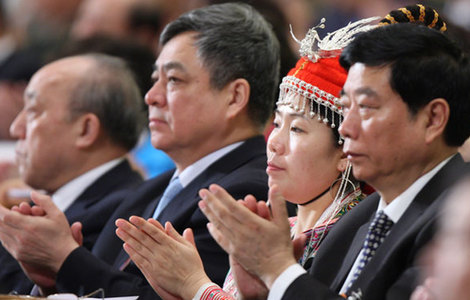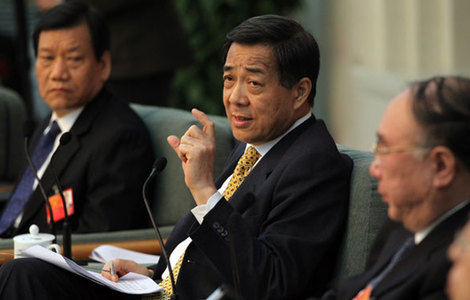 |
|
|
|
|||||||||||
'Seasonal factors' may have caused an 'individual case", say experts
China posted its largest trade deficit in the past two decades last month, while the nation's imports surged by 40 percent. Exports grew at half the rate of imports.

Economists say the spike in imports and large trade deficit in February is an "individual case" and could be attributed to "seasonal factors", predicting imports will moderate in the months ahead as China's economic growth slows.
They also said the gloomy outlook will probably lead to a "slower pace of gains in the Chinese currency and the easing of government policy".
According to the General Administration of Customs, China's imports rose 39.6 percent from a year earlier, after a 15.3 percent slump in January. Exports grew 18.4 percent year-on-year, with drop of 0.5 percent.
This caused a trade deficit worth $31.5 billion in February, the largest since 1990.
Because the Chinese lunar New Year fell in January this year, the year-on-year growth rates for Chinese exports and imports were distorted, and combined figures for the January-February period "could better reflect the current situation", said Li Wei, an economist from Standard Chartered Shanghai.
In that period, China's foreign trade gained by 7.3 percent to $533 billion, with imports increasing 7.7 percent and exports 6.9 percent. The first two months saw a trade deficit worth $4.25 billion.
In his government work report on Monday, Chinese Premier Wen Jiabao cut the economic forecast for this year to 7.5 percent, saying China's 2012 priorities are to stabilize economic growth and expand domestic consumption.
Wen also said China's foreign trade this year is expected to grow by 10 percent.
"Outlook is not positive," said Wang Tao, economist with UBS AG.
China's export volume to the European Union is especially weak due to the debt woes, she said. "But the US market is a little better."
From January to February, China's exports to the EU dropped by 1.1 percent, pulled down by the crisis in Italy, where imports from China fell by 31.1 percent. But sales to the US gained 12 percent.
Emerging markets helped Chinese exports. Sales to Russia and Brazil gained 10.3 and 10.9 percent, respectively.
But the scale of the deficit in January and February may soften blame, especially from the US, that China supports its exports by keeping its currency artificially weak, said experts.
"By the end of the third quarter, we would see mild growth for China's exports and imports," said Li.
"This will slow down the pace of the yuan's appreciation. China could achieve a target of 10 percent growth in foreign trade this year, but the task will be arduous,."
Wen said in the work reports that the government will "carry out timely and appropriate anticipatory adjustments and fine-tuning" of fiscal and monetary policies.
People's Bank of China Governor Zhou Xiaochuan also said recently that China may "appropriately" widen the yuan's trading band "to better reflect market supply and demand."
Jiangsu, which ranks third in China in terms of foreign trade, also suffered a blow.
"Jiangsu's situation is worse than the nation's average," said Dan Jiaxiang, deputy director, of Jiangsu's department of commerce.
Jiangsu's exports gained by 3 percent year-on-year from January to February, and its imports decreased by 3 percent.
The outlook for exports and imports in the coming months does not augur well for the province in China's eastern region, Dan predicted.
Wu Ying, iPad, Jeremy Lin, Valentine's Day, Real Name, Whitney Houston, Syria,Iranian issue, Sanyan tourism, Giving birth in Hong Kong, Cadmium spill, housing policy

|

|

|

|

|

|